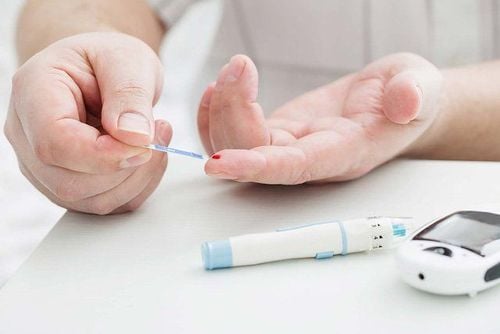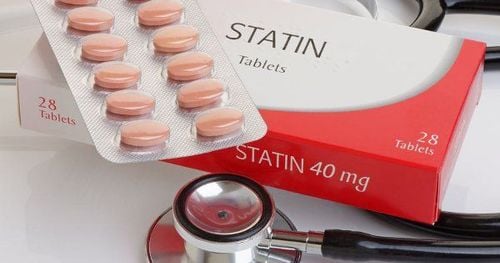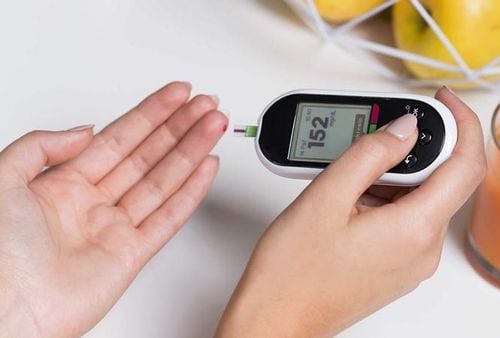This is an automatically translated article.
For people with diabetes diet is the most important. What is a high protein diet for diabetics? What foods are good sources of protein? What principles should be followed is a question asked by many.
1. Principles of building a diabetic diet
The construction of a diabetic diet is similar to that of a normal person, but it is necessary to calculate the quantity and ingredients so that the nutrition and calories are obtained from food sources. The composition of a diabetic meal also includes groups of glucid, protein, lipid and fiber. Calculating calories from food can be based on the following formula: calories in 1 day = 25 Kcal/kg x body weight.
For example: a female diabetic, weighing 50 kg, the amount of calories provided from food is calculated as follows: Total = 25 Kcal x 50 = 1250 Kcal.
Also keep in mind the ratio of glucid:protid:lipid = 6:2:2
You should refer to the guidance of a nutritionist to know how to calculate the total amount of food needed for diabetics in 1 days based on calculated calories. From there, building a suitable diet becomes a lot easier.

Người bệnh tiểu đường cần có chế độ ăn khoa học
2. Can diabetics eat beef?
People who eat a lot of red meat have an increased risk of type 2 diabetes, while those who cut red meat in their daily diet have a significantly reduced risk of the disease. That's the finding of a large, recent Singapore study of 149,000 US men and women. The researchers found that increasing red meat consumption can increase the risk of type 2 diabetes by 48 percent. "There's no need to have more red meat on your plate, it increases your risk of the disease. diabetes," said lead researcher An Pan, an associate professor at the Saw Swee Hock School of Public Health at the National University of Singapore. "It's better to reduce your red meat consumption by replacing it with other healthy food choices, like beans, soy products, nuts, fish, poultry and whole grains," he says. added. The report was published in JAMA Internal Medicine June 17.
Thus, for people with diabetes, beef in particular and red meats in general should be limited in their daily diet. If you use it, use a small amount, don't use it often and calculate the calories it provides.

Người tiểu đường nên hạn chế ăn thịt đỏ
3. Can diabetics eat eggs?
A new study shows that eggs have no adverse effect on cholesterol levels in people with type 2 diabetes. Researchers have also found that eating an egg-rich diet for 3 months is linked to better appetite control, and can also lead to a feeling of fuller.
The findings suggest that eating two eggs a day, 6 days a week is relatively safe in the healthy diet of people with type 2 diabetes, says Nicholas Fuller, PhD, from the experimental department clinical practice of the Boden Institute, University of Sydney, Australia. Fuller presented his findings at the European Association's 2014 Diabetes Research Conference last month. He says the study disproves the widely spread negative myths about eggs in the diets of people with type 2 diabetes. However, studies have also shown that eating eggs does not. Many eggs are not linked to heart problems in people without diabetes, but it may be linked to heart problems in people with type 2 diabetes, he adds.
However, the national data on egg intake and total cholesterol limits are inconclusive, and show inconsistencies across countries, he said. In Australia, for example, the National Heart Foundation recommends up to six eggs per week as part of a diet low in saturated fat for healthy people and in people with type 2 diabetes. But in the US States, guidelines recommend cholesterol should be limited to less than 300 milligrams per day for healthy people — and one egg has about 200 milligrams of cholesterol. That guideline also recommends that people with type 2 diabetes eat less than four eggs per week. More studies are needed on the effects of high egg intake in people with type 2 diabetes, Fuller said.

Chúng ta không nên lạm dụng việc ăn trứng
4. Protein for Diabetics
Protein-rich foods such as fish, chicken, soy products, and cheese are all called “protein foods”. These are called “meat” or “protein food groups”. The biggest difference between these foods is the amount of fat they provide and, for vegetarian proteins, how much carbohydrate they provide.
Choose protein sources
Plant-based protein: Plant-based protein foods not only provide healthy protein, but also provide a healthy dose of fats and fiber. They vary in fat and carbohydrate counts, so be sure to learn about that food before consuming it. Plant-based proteins can be found in the following list:
Legumes such as black beans, peas, and pinto beans Legume products such as baked beans and refried beans Brown, green or yellow lentils legumes such as black-eyed peas or peas Soybeans Nuts and their processed form such as almond butter, cashew butter or peanut butter Tofu Meat-like vegetarian foods such as: vegetarian chicken, vegetarian beef, vegetarian sausage,...

Đậu phụ là một loại protein từ thực vật rất tốt
Fish and seafood
You should eat fish at least twice a week Fish high in omega-3 fatty acids such as Albacore tuna, herring, mackerel, rainbow trout, sardines and salmon Other types of fish include including catfish, cod, halibut, black-spotted cod, orange roughy flounder and tilapia Shellfish includes clams, crabs, lobsters, scallops, common shrimp, scallops. Poultry
Choose skinless poultry that is low in saturated fat and cholesterol: Chicken, turkey, hen
Cheese and eggs: reduced-fat or regular cheese in small quantities, whole eggs
Beef, pork, veal, lamb
It is best to limit your intake of red meat (as they are often high in saturated fat), processed meats such as ham, bacon and sausages (which are often high in saturated fat). saturated fat and salt). If you do decide to eat these, choose healthier options:
Choose cuts of beef including: ribs, roasts, sirloin, ribs, steaks. Veal: sirloin or roast Pork: bacon, sirloin, ham

Bò bít tết được lựa chọn cho khẩu phần ăn của người bệnh tiểu đường
For people with diabetes, a balanced diet is most important. Calorie intake from food should be calculated. Red meat should be reduced, replaced with white meat and other healthier protein sources. Eggs need to be eaten in limited quantities for a week. Most importantly, do not forget to combine with daily exercise and sports activities, combined with a reasonable diet and rest, to have a good effect on controlling blood sugar and diabetes complications.
References source: diabetes.org, webmd.com, National Institute of Nutrition
MORE:
Can you eat eggs, if you have diabetes? 11 types of good drinking water for diabetics 15 best fruits for diabetics













